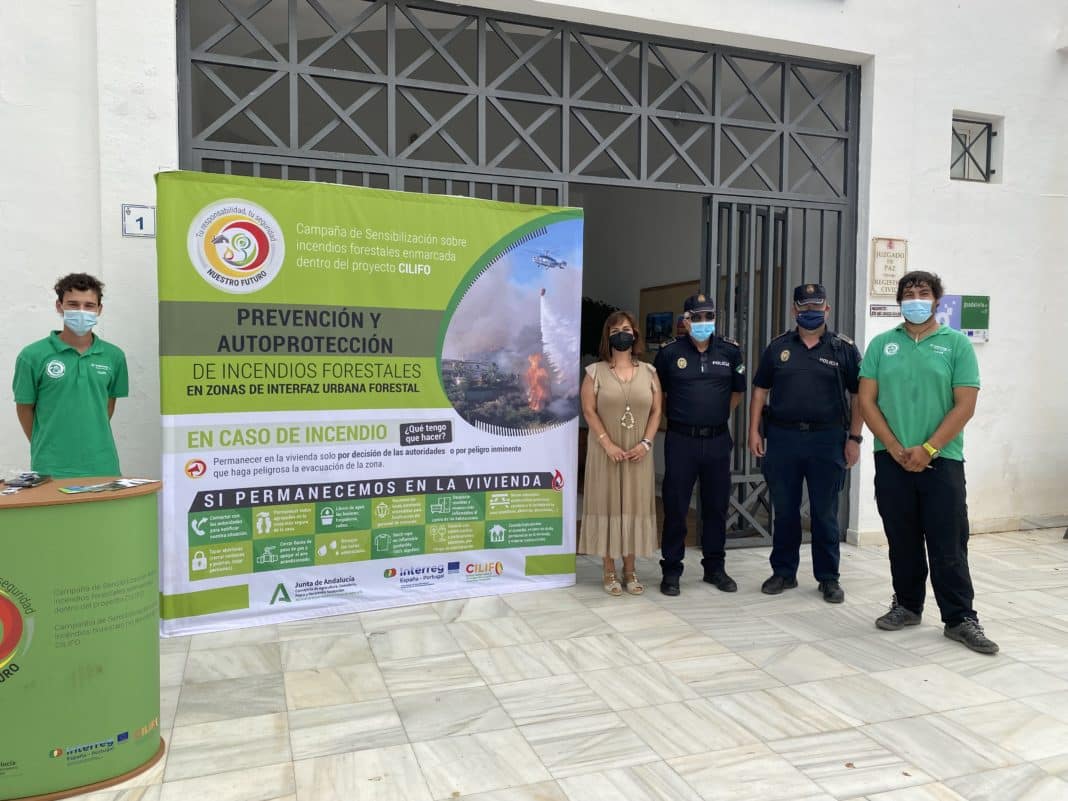As part of the CILIFO project, organised by the Junta de Andalucía together with the Government of Portugal, and consisting of an awareness-raising campaign on the fight against fires, Mojácar residents are being informed about the risks and the prevention of this problem which, in the summer season, devastates localities which are particularly vulnerable due to their proximity to forested areas.
Different points of the municipality, in coordination with Mojácar Council and the Local Police, are the main object of the initiative, which involves visiting certain zones where there is a combination of forested land and buildings and typically urban infrastructure.
Throughout this week, they are going round the municipality leafleting and providing direct information at specific points with a stand located in different squares and the busiest streets.
Featured among the main efforts of this campaign are advising on preventative measures which should be respected in residential complexes and country houses and the use of burning on agricultural or forested land, as well as the actions to take in the event of fires.
The Iberian Centre for the Investigation and Fight against Forest Fires (CILIFO) involves 15 associates and has a budget of more than 24 million euros.
The aim of the project is not only to improve forest fire prevention infrastructure, but also to create new tools for fighting against one of the peninsula’s greatest environmental challenges through the use of drones in extinction and the study of the dynamics of fires and the subsequent recuperation of vegetation and fauna, as well as controlled burnings to revitalise eco-systems and the habitats of fauna, training and social awareness.
Hence as part of the CILIFO Project, a number of specific awareness-raising campaigns for the areas at risk due to their vulnerability and the frequency of fires have been coordinated with a nearly 240,000-euro budget.
Said campaigns are made up of different actions: itinerant campaigns, including those in Mojácar and a number of themed meetings, the main aim of which will be to explain the applicable regulations, as well as fire prevention measures, self-protection and emergency protocols established by institutions, educational material intended for teacher training, among other training actions applicable to the rural world.





